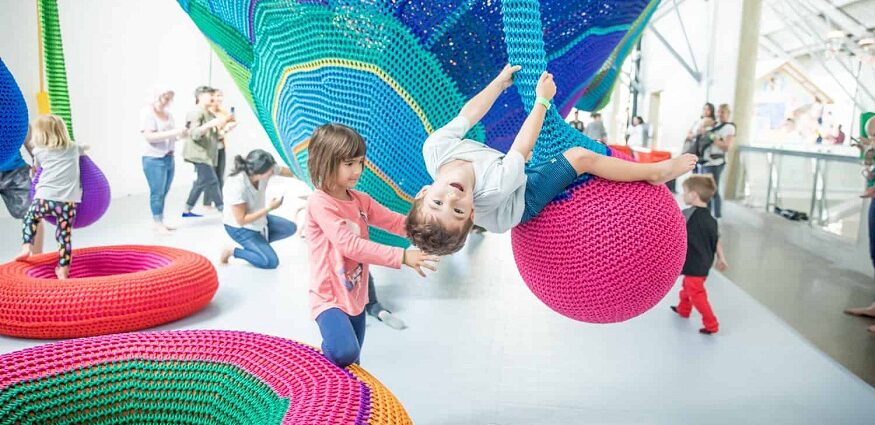In the ever-evolving landscape of education, STEM (Science, Technology, Engineering, and Mathematics) has become a pivotal element of contemporary learning frameworks. Among the infinite resources enriching STEM education, children’s museums stand out as dynamic environments where young minds can explore and interact with scientific concepts. In Bangalore, a city heralded for its educational facilities, institutions like Deeksha STEM, known as one of the top-rated schools in Bangalore, leverage these museums to complement their curriculum, thus enriching the educational journey of their students.
Enhancing STEM Learning through Interactive Experiences
Children’s museums are designed to provide interactive, hands-on experiences that make learning both fun and impactful. By integrating museum visits into the STEM curriculum, schools can enhance abstract concepts with tangible experiments and real-world applications. This method proves especially beneficial for schools in urban localities like Bangalore, where a high premium is placed on innovative teaching methodologies that foster deep understanding and long-lasting curiosity in young learners.
Bridging the Gap between Theory and Practice
Theoretical knowledge, while foundational, can often seem intangible to students. Children’s museums bridge this gap by bringing STEM principles to life through exhibits that demonstrate scientific laws, engineering principles, and mathematical theories in actionable formats. This hands-on approach is embraced by top-rated schools in Bangalore, such as Deeksha STEM, which continually seek out opportunities to augment classroom learning with practical, real-world applications.
School Admission and STEM Opportunities
For parents searching for the “best schools near me,” it’s important to consider how prospective schools utilize local resources like children’s museums to enhance their STEM programs. Schools that prioritize such integrations typically advertise this during the school admission process, appealing to parents who value a comprehensive approach to education. Deeksha STEM, with its campuses strategically located across Bangalore — including Bannerghatta Road, Kanakapura Road (Judicial Layout), Kengeri, and Vidyanagar (International Airport Road) — offers robust STEM programs that integrate external educational resources such as children’s museums to enrich their students’ learning experience.
Incorporating Museums into the Curriculum
Incorporating children’s museums into the curriculum involves more than occasional field trips; it requires a strategic approach where museum resources align with specific curriculum goals. For example, exhibits on renewable energy and robotics can be synced with classroom units on similar topics, providing students a dual exposure to the concepts. This strategy is utilized by the top schools in Bangalore, where the curriculum is designed to prepare students to excel in a competitive global environment.
The Role of Museums in Developing Critical Thinking
Children’s museums offer unique environments that challenge students to think critically and solve problems. Interactive exhibits encourage questions, prompt investigations, and require decision-making, all of which are crucial components of STEM education. Schools like Deeksha STEM emphasize these skills, understanding that they are essential for students’ success in higher education and their future careers.
Social Benefits of Museum Visits
Beyond the academic benefits, museum visits foster social skills such as collaboration and communication. Students learn to work in teams, share discoveries, and discuss ideas, which are invaluable skills in any educational or professional setting. These social dynamics are particularly nurtured by schools in Bangalore, where diversity and teamwork are encouraged both in and out of the classroom.
Long-Term Benefits for Students
The impact of integrating children’s museums into STEM education extends beyond immediate academic performance; it helps cultivate a lifelong love of learning and a curiosity about the world. For students at top-rated schools in Bangalore like Deeksha STEM, these experiences can influence career paths and inspire future innovations in science and technology.
As Bangalore continues to thrive as a hub of top schools and educational excellence, the role of children’s museums in enhancing STEM education becomes increasingly significant. For parents during the school admission season, understanding how potential schools utilize these resources can be a crucial factor in decision-making. For institutions like Deeksha STEM, children’s museums are not just educational resources; they are vital partners in the mission to provide a holistic, engaging, and rigorous education. By fostering an environment where practical, hands-on learning is valued just as highly as traditional academic pursuits, these schools ensure that their students are not only well-prepared for the future but are also active participants in shaping it.
STEM education opens a myriad of opportunities for individuals in today’s rapidly evolving world. As technology continues to reshape industries and societies, the demand for STEM-skilled professionals is on the rise. Embracing STEM education not only equips individuals with the technical skills needed to excel in various fields but also fosters critical thinking, problem-solving abilities, and innovation, which are essential attributes in the 21st-century workforce.
One of the primary opportunities that STEM education offers is access to a wide range of lucrative and fulfilling career paths. From software engineering and data analytics to biomedical research and renewable energy, STEM fields offer diverse avenues for professional growth and development. Moreover, STEM professionals are often at the forefront of innovation, driving advancements in technology, healthcare, environmental sustainability, and beyond. As industries continue to digitize and automate, individuals with strong STEM backgrounds are poised to thrive in the job market, with opportunities for high-paying jobs and upward mobility.
Furthermore, STEM education transcends traditional boundaries and opens doors to interdisciplinary collaboration and innovation. In today’s interconnected world, complex challenges such as climate change, global health crises, and cybersecurity threats require multifaceted solutions that draw upon insights from various disciplines. STEM-educated individuals possess the skills and knowledge to work across fields, collaborate with diverse teams, and develop innovative solutions to tackle pressing issues facing society. By fostering interdisciplinary thinking and collaboration, STEM education not only prepares individuals for success in their careers but also empowers them to make meaningful contributions to addressing global challenges.
Moreover, STEM education provides opportunities for lifelong learning and continuous skill development. In fast-paced industries such as technology and engineering, staying abreast of the latest advancements and emerging trends is crucial for remaining competitive. STEM-educated individuals are equipped with the foundation and mindset to adapt to evolving technologies and methodologies throughout their careers. Whether through professional development courses, online learning platforms, or hands-on projects, STEM professionals have access to a wealth of resources to enhance their skills, broaden their knowledge, and stay ahead of the curve.
Additionally, STEM education fosters a culture of curiosity, creativity, and exploration, laying the groundwork for lifelong learning and personal growth. By encouraging hands-on experimentation, problem-solving, and critical inquiry, STEM educators inspire students to think critically, ask questions, and explore the world around them. This curiosity-driven approach not only ignites a passion for learning but also instills resilience and adaptability, empowering individuals to navigate challenges and embrace opportunities in an ever-changing landscape.
In conclusion, STEM education opens a world of opportunities for individuals, from rewarding careers and interdisciplinary collaboration to lifelong learning and personal growth. By equipping individuals with the skills, knowledge, and mindset needed to excel in today’s technology-driven world, STEM education empowers individuals to make meaningful contributions to society, drive innovation, and shape the future of our world.

